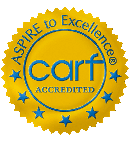Blog
Effective Techniques & Therapies to Manage Anger
Anger is a normal human emotion, but when it becomes overwhelming or uncontrolled, it can lead to serious problems in personal relationships, work, and overall quality of life. According to the American Psychological Association, about 1 in 5 Americans has an anger management problem. Learning to manage anger effectively is crucial for mental health and well-being.
There are various techniques and therapies that can help individuals better control their anger and improve their emotional responses. Understanding these approaches can be the first step towards healthier anger management.
Understanding Anger and Its Triggers
Before diving into management techniques, it's important to understand what anger is and what causes it. Anger is often a secondary emotion, masking underlying feelings such as fear, hurt, or frustration. Common triggers include:
- Stress and pressure
- Feeling disrespected or unheard
- Perceived injustice or unfairness
- Physical discomfort or pain
- Unmet expectations
Identifying personal triggers is the first step in developing effective anger management strategies.
Cognitive Behavioral Therapy (CBT) for Anger Management
Cognitive Behavioral Therapy is one of the most effective approaches for managing anger. It focuses on identifying and changing negative thought patterns that lead to angry outbursts. CBT for anger management typically involves:
- Cognitive restructuring: Learning to recognize and challenge irrational thoughts
- Relaxation techniques: Practicing methods to calm the body and mind
- Problem-solving skills: Developing strategies to address issues without resorting to anger
- Communication training: Improving ways to express needs and concerns assertively
- Mindfulness practices: Increasing awareness of emotions and reactions
Relaxation Techniques for Immediate Anger Control
When anger strikes, having quick relaxation techniques at hand can help diffuse the situation. Some effective methods include:
- Deep breathing exercises
- Progressive muscle relaxation
- Visualization of calming scenes
- Counting to ten (or higher if needed)
- Taking a brief time-out from the situation
Regular practice of these techniques can make them more effective when needed in high-stress moments.
Mindfulness and Meditation for Long-Term Anger Management
Mindfulness and meditation practices can help individuals become more aware of their emotions and reactions, leading to better anger control over time. These practices involve:
- Focusing on the present moment
- Observing thoughts and feelings without judgment
- Developing greater emotional awareness
- Cultivating patience and compassion
- Regular practice to build mental resilience
Even a few minutes of daily mindfulness practice can lead to significant improvements in anger management.
Physical Exercise as an Anger Outlet
Physical activity can be an excellent way to release pent-up anger and frustration. Regular exercise offers several benefits for anger management:
- Releases endorphins, improving mood
- Provides a healthy outlet for excess energy
- Reduces stress and tension in the body
- Improves overall mental health
- Enhances self-esteem and confidence
Finding an enjoyable form of exercise, whether it's running, boxing, or yoga, can be a powerful tool in managing anger.
Communication Skills for Better Anger Expression
Often, anger stems from poor communication. Learning to express feelings and needs effectively can prevent many anger-inducing situations. Key communication skills include:
- Active listening: Truly hearing and understanding others' perspectives
- Using "I" statements: Expressing feelings without blaming or attacking
- Assertiveness training: Learning to stand up for oneself respectfully
- Empathy development: Understanding and considering others' feelings
- Conflict resolution techniques: Finding mutually beneficial solutions to disagreements
The Role of Lifestyle Changes in Anger Management
Certain lifestyle factors can significantly impact one's ability to manage anger. Consider making changes in these areas:
- Improving sleep habits for better emotional regulation
- Reducing alcohol and caffeine intake
- Maintaining a balanced diet for stable mood
- Practicing stress management techniques daily
- Creating a supportive social network
Small, consistent changes in these areas can lead to substantial improvements in anger control.
Seeking Professional Help for Anger Management
While self-help techniques can be effective, sometimes professional help is necessary. Consider seeking therapy if:
- Anger is causing problems in relationships or work
- You feel out of control when angry
- Anger leads to physical violence or threats
- You're using substances to cope with anger
- Self-help methods aren't providing enough relief
A mental health professional can provide personalized strategies and support for managing anger effectively.
Take Control of Your Anger Today
Managing anger is a skill that can be learned and improved over time. By implementing these techniques and seeking help when needed, you can gain better control over your emotions and improve your overall quality of life. A Better Way Healthcare Services LLC offers comprehensive anger management programs tailored to individual needs. Our experienced therapists can help you develop effective strategies to manage your anger and lead a more balanced life.
If you're ready to take the first step towards better anger management, contact A Better Way Healthcare Services LLC at 470-619-0770 to learn more about our anger management services and how we can support you on your journey to emotional well-being.
‹ Back










